R.J. Reynolds has been ordered by a federal jury in North Carolina to pay rival Altria Group damages totaling $95 million. The jury ruled in Altria Group’s favor on September 7, 2022.
This is part of the ongoing case of the Altria Client Services vs. Reynold Vapor Company, et al. R.J. Reynolds Vapor Co. is the vape division of Reynolds American Inc., which is under the British American Tobacco (BAT) umbrella.
The verdict is the result of three patent infringements revolving around the patent for the Vuse Alto.
The initial accusations from Altria saw the Virginia-based company seeking at least 5% of the royalties from sales of the Vuse Alto and its products. In accordance with the Greensboro jury, RJ. Reynolds could be facing further penalties on the sales of the Alto until up to 2035.
It is likely that this is far from the end of the legal proceedings between these two giants of the industry. A Renolds spokesperson concluded that the verdict itself was a disappointment and that the company is willing to “vigorously defend the issues remaining for the court.” This will likely come in the form of an appeal.
This sentiment is only further reinforced by the ongoing legal battles between Reynolds and Philip Morris International (PMI) over various patent infringements.
R.J. Reynolds’ History of Patent Infringements
This is not the first time Reynolds has been targeted as the culprit for patent infringements within the vaping industry. The Vuse brand in particular has racked up several lawsuits over the years, with the outcomes often ruling in favor of the plaintiffs.
Fuma International, LLC
In 2019, Fuma International, LLC sued Reynolds for infringing two patents. Similar to this most recent case, the patents were covering e-cigarettes that focused on a cartridge or pod design and a power source. Fuma even alleged that the infringement was a result of shared designs from a meeting between the two companies in 2010.
U.S. District Judge Catherine Eagles ruled that two out of the three relevant patent elements were infringements of Fuma’s existing patent.
Reynolds went on to settle for an undisclosed amount. However, Fuma was asking for up to $135 million in damages.
Philip Morris International
Earlier this year, Philip Morris International was awarded a victory against Reynolds for patent infringement. Again, the Vuse product line was the culprit in this case.
The Solo and Alto devices were found guilty of infringing two existing patents for heating substances and leak prevention systems held by PMI.
In accordance with the jury’s ruling, Reynolds was ordered to pay $10.7 million in damages.
A PMI spokesperson went on to rejoice in the decision which “rejects an attempt by BAT to free-ride on our hard work and investment.” This is surely a sentiment that is still held by PMI and others like Altria Group at this point.
Aside from this case of multiple patent infringements by Vuse products, the two big tobacco companies have also taken to court for alleged patent infringement of PMI’s IQOS heat-not-burn tobacco products.
This case is still currently on hold, most likely as a result of the Biden administration barring the sales of these products.
Copying in the Vape Industry
While Reynolds is often under fire from rival companies for patent infringement, it is no secret that there is a huge amount of copying done within the industry.
The concept of vape and e-cigarette devices is rather a simple one, which leaves companies with only so much leeway when patents come into play, particularly with the cheaper devices that are the focus of these lawsuits.
Furthermore, the intense competition between these companies results in any popular design being quickly taken note of.
JUUL Labs
Juul is an excellent example of this. Their immense popularity left many other companies imitating their designs to gain favor with the consumer population.
In October 2018, Juul Labs filed a complaint with the U.S. International Trade Commission regarding multiple patent infringements. The vaping giant listed 18 companies in total that had allegedly infringed on their designs.
This came after a previous trademark infringement filed by Juul against 30 vaping manufacturers. This time not focusing on patent infringement, but using the brand’s name or designs.
Single-Use Devices
The disposable device market only proves to highlight this copy-cat culture even further. The huge surge in popularity of these single-use products over the past few years has resulted in thousands of near-identical products hitting the shelves across the globe.
However, these single-use devices also demonstrate better than anything else how simple vapes truly can be at their essence. These devices at their core require a few components to satisfy customer needs, again, making it difficult and nearly unnecessary for companies to focus on new designs.
Of course, there are companies pushing the envelope in terms of technology, but these are almost exclusively reserved for higher-end products, not disposables and pod or cartridge devices.
In Summary
R.J. Reynolds Vapor Company has been ordered by a jury to pay rival Altria Group damages of $95 million as a result of patent infringement. Reynolds will also be made to pay approximately 5% of the sales accrued from the Vuse devices that were found guilty, until Altria’s patents expire in 2035.
This continues Reynolds’ history of patent infringement in the vaping space. Rival Philip Morris International has taken the company to court for multiple patent infringement cases, with some cases still ongoing. There have also been other smaller companies like Fuma International that have taken legal actions for the same reasons.
This means Reynolds has possibly paid up to $240 million in damages for these cases alone.
However, copying designs has almost been a staple of the industry for many years, and the slew of near-identical disposable products flooding the market proves it is likely here to stay for years to come.



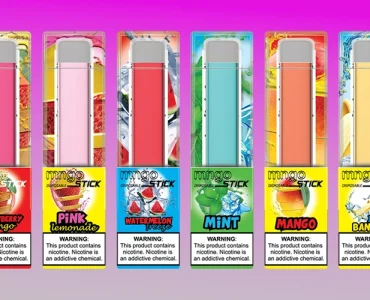

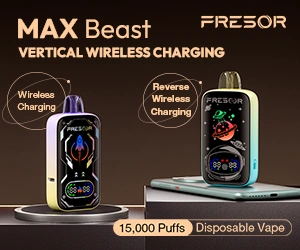
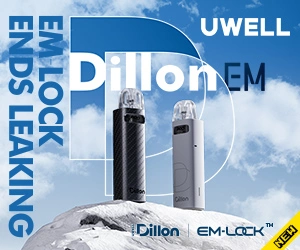
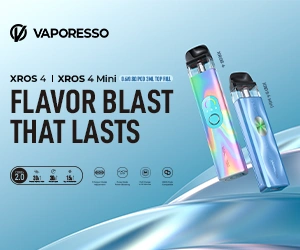
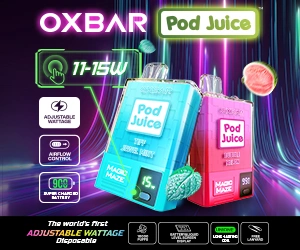
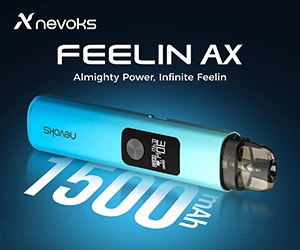
Add comment